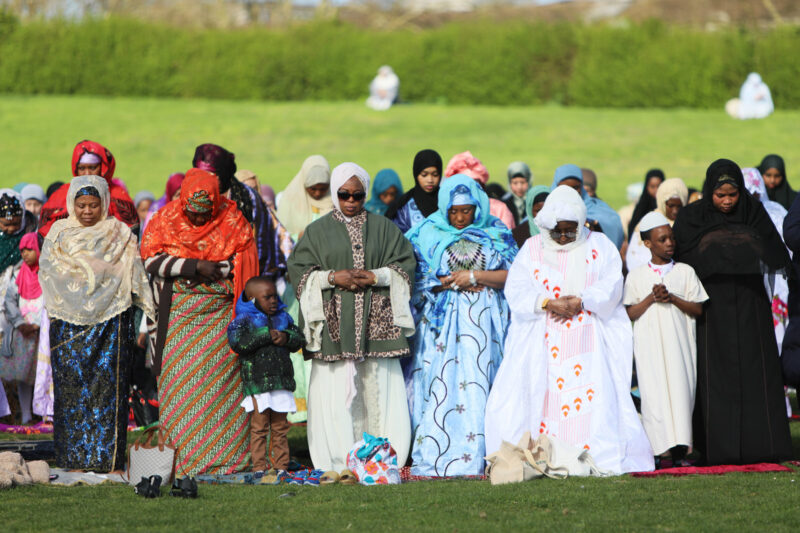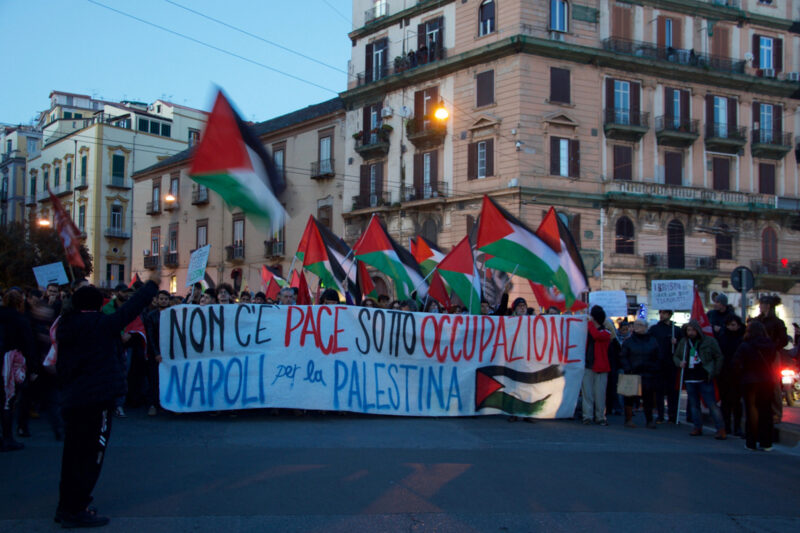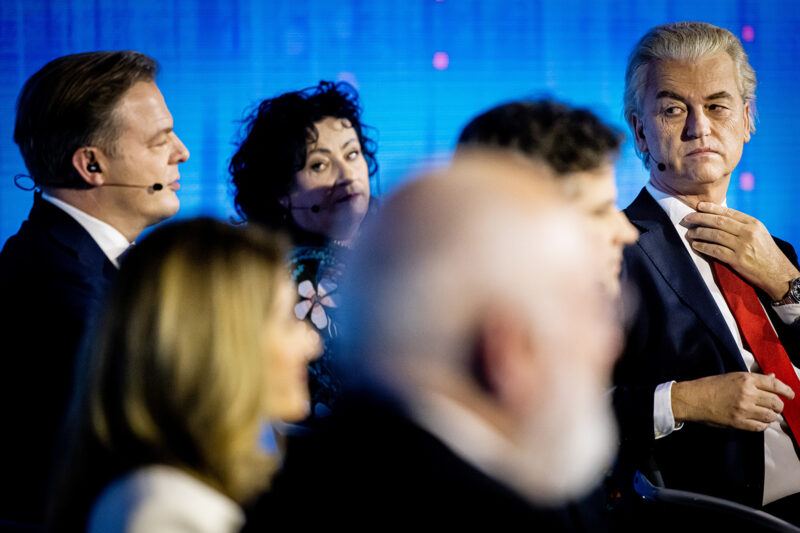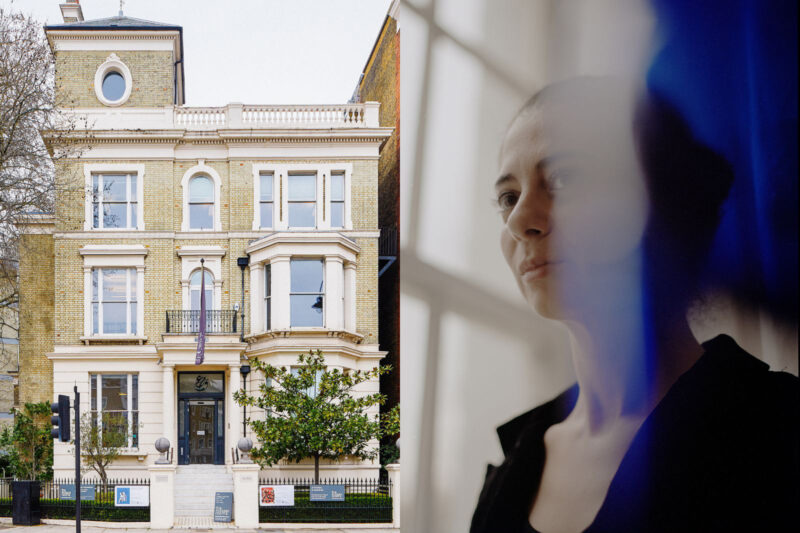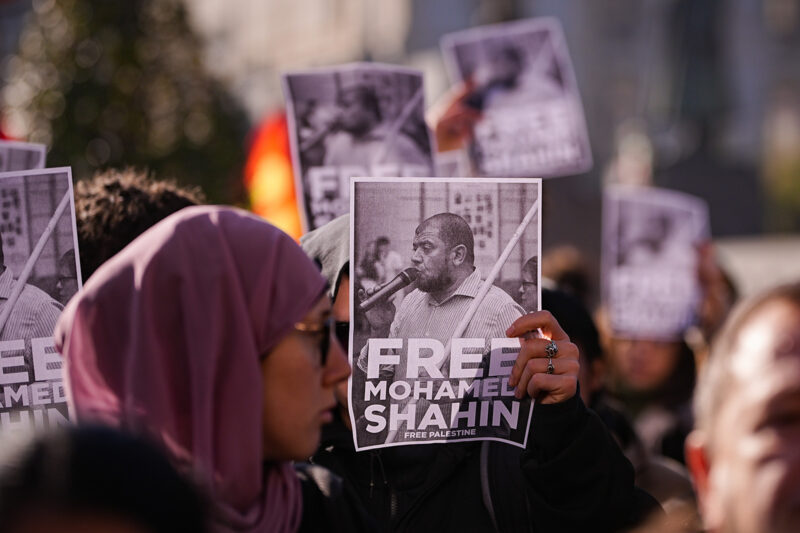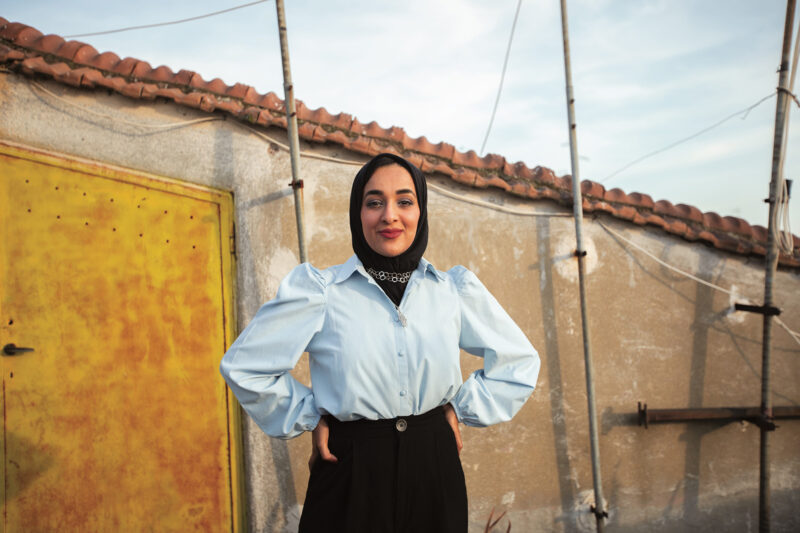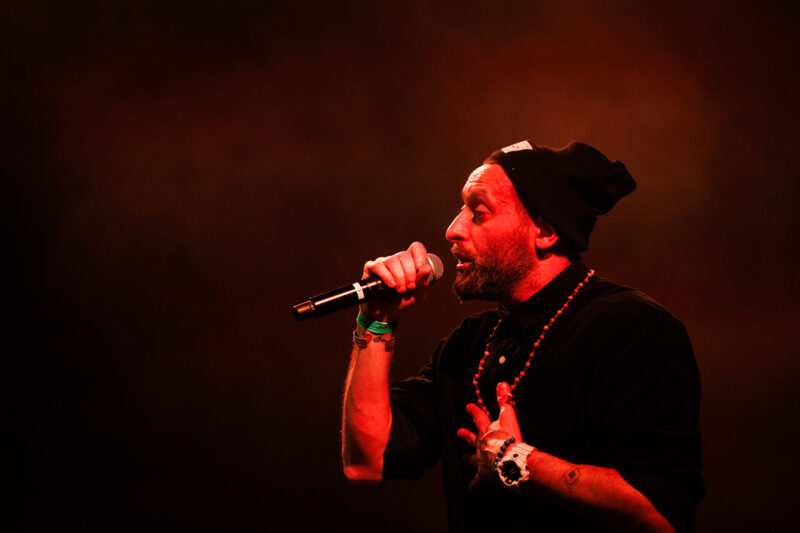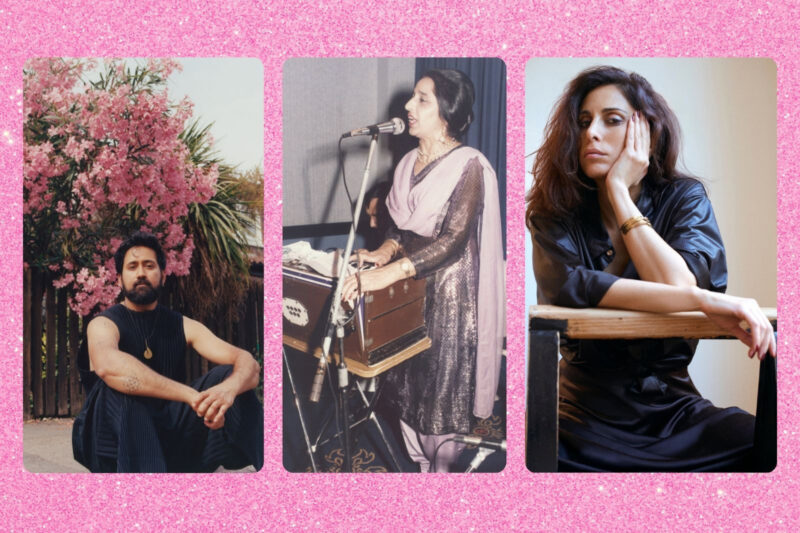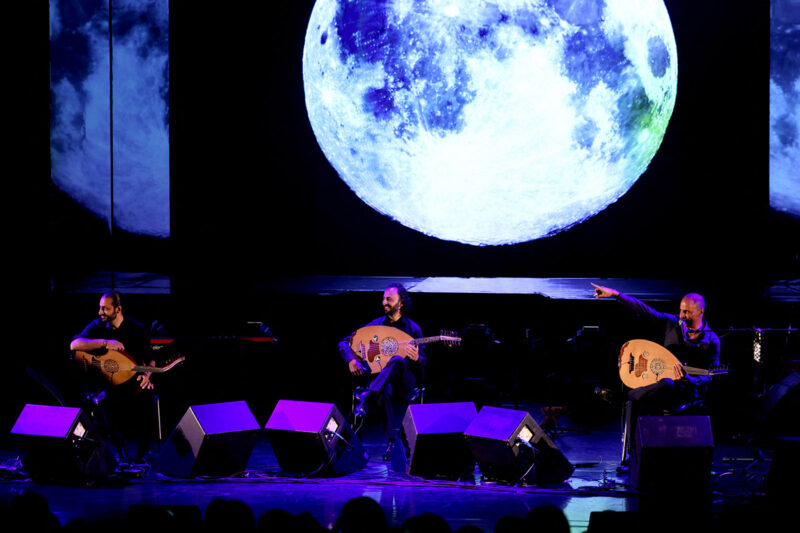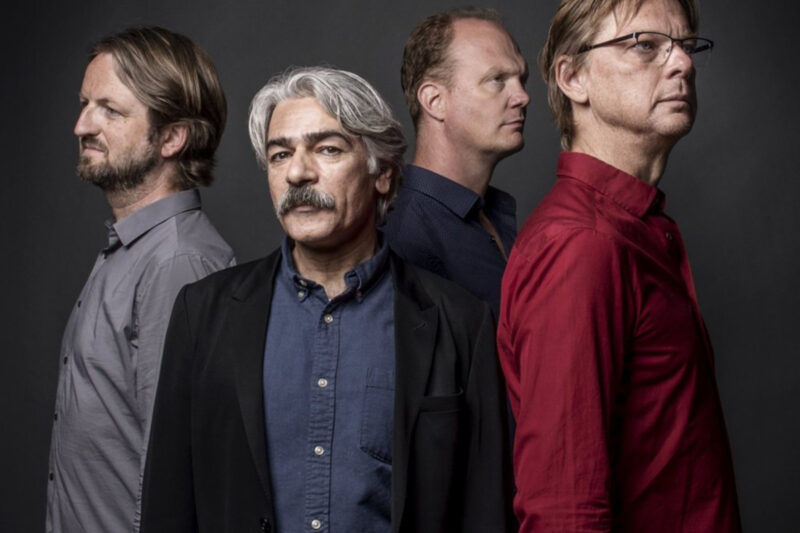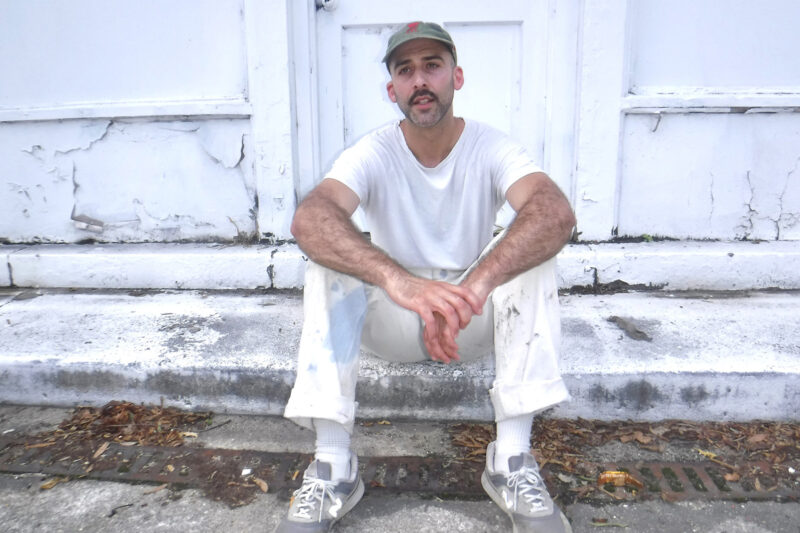Tära: singing to keep Palestinian culture alive
A growing fanbase across Italy is responding to this singer’s message of hope and unity
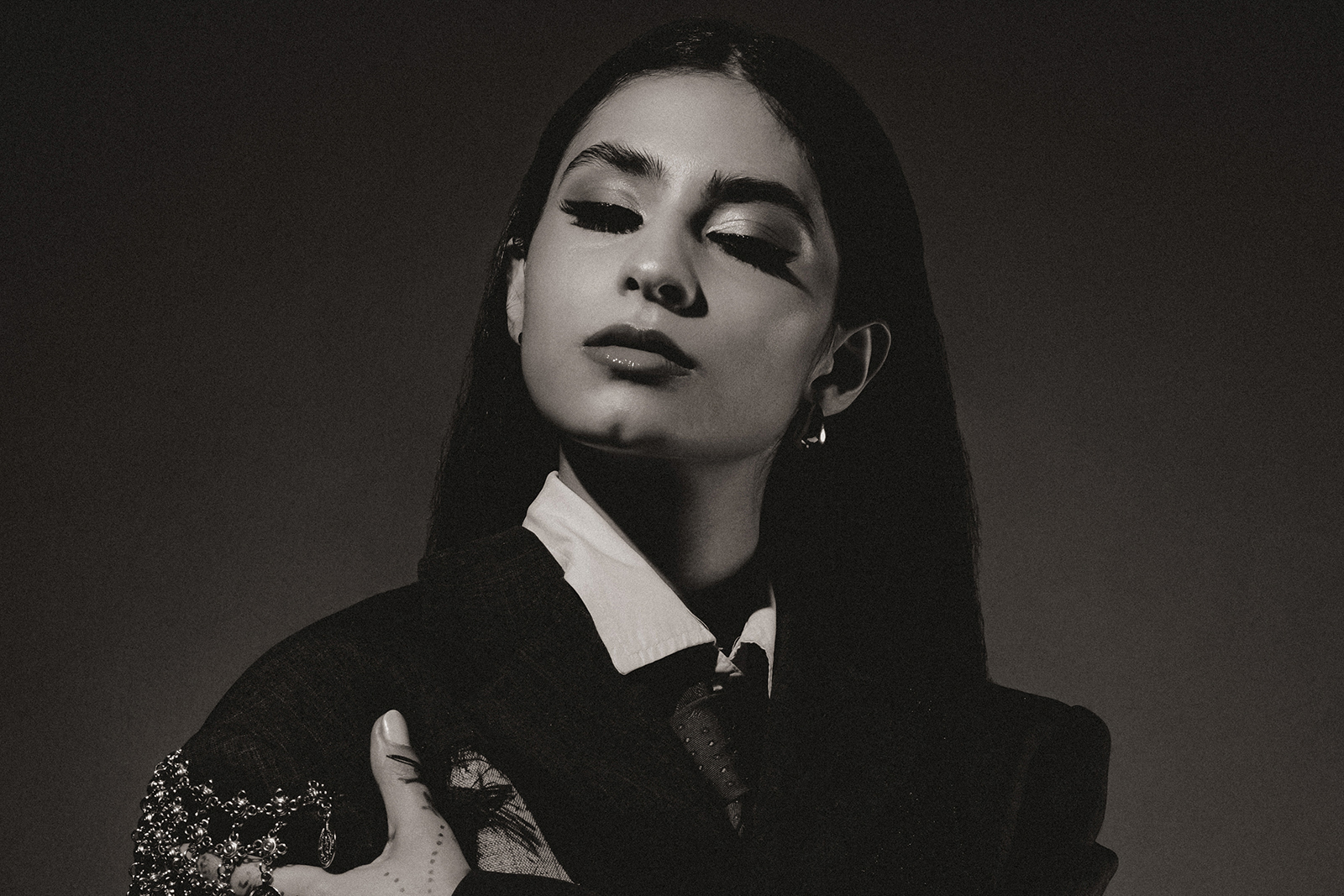
On a breezy April evening, Palestinian-Italian singer Tära has captured the attention of a large crowd gathered in Modesto di Veglia park in Rome, singing Ya Helwe Ciao, a hymn to freedom, hope and unity.
The song is an Arabic take on Bella Ciao, Italy’s famous chant of liberation at the end of the second world war, and in recent years has been sung in protest against repressive regimes across the Middle East. In Italy 25 April is Liberation Day, celebrating the overthrow of fascism. On stage, Tära shares her wish that “one day, hopefully, we will be able to celebrate it for Palestine too”.
Over the past year, 22-year old Tamara al-Zool — who performs under the stage name Tära — has tried to educate her 74,000 Instagram followers about the Palestinian struggle. Her work, she explained, is both music and education. “The two are absolutely intertwined,” Tära told Hyphen. “I don’t think of myself as an activist, but I do think music and art in general has the power of bringing people closer, so I’m eager to use my work as a tool to achieve that.”
Born in Frosinone, near Rome, to Palestinian parents from Jaffa, Tära has developed a new music genre — Arab&B — blending Italian pop music with Arabic words and Levantine sounds. She draws on a childhood of feeling like an outsider in a country with no artists on TV she could identify with. “I struggled with bullying and encountered significant racism, both online and in person, because of my background,” she said. As a child, this led her to try to hide her origins, a struggle she addresses in her hit Ya’aburnee. “Then luckily I realised that language and mind barriers exist, but emotions are universal, and words are not everything.”
She’s been active in the Italian music scene for three years but her work started to gain serious attention following 7 October 2023 and Israel’s assault on Gaza. She recently performed on X Factor Italy and has been invited to perform at the MI AMI festival in Milan at the end of May and the Notte della Taranta in August, an event renowned for having jump-started the careers of many hit singers.
Most of the crowd in Modesto di Veglia park are teenagers. Bianca, 15, manages the singer’s official Italian online fan club. “What immediately fascinated me about Tära as an artist were her Instagram reels that help us discover little pieces of Palestine,” she explained. “It’s thanks to her that I found out about Israel’s human rights violations against the Palestinians and began boycotting all products that support the apartheid. I lectured my close circle of friends about it and now we have all joined the BDS movement.”
A major motivation for Tära as an artist is to help establish a safe environment for young people — especially first and second-generation children of immigrants experiencing discrimination and looking for representation. “I’m happy if my music is now able to support other people. My mission is to be a guiding voice amid dystopian times.”
Music has also been a way to express the strong emotions she’s felt watching the war raging in her homeland from an environment that seems indifferent to the horror. Tära explains the Arabic phrase mish fariqa: the refrain in her song Dunya, which translated literally means it doesn’t matter but conveys that a person is indifferent to the world. “I sing from the point of view of a world that no longer seems to care about what is happening,” Tära said. “It’s a feeling I’ve felt over the years, a somewhat dystopian vision that has deteriorated with what’s happening in Gaza these days. And I’m sad to see that it is not just the west turning a blind eye, but also fellow Arab countries.”
Tära no longer hides her background: her Palestinian heritage is central to her identity as an artist. Jessica Pulsone, a 33-year-old fan and henna artist living in Rome, was introduced to Tära’s music having been drawn to her visual presence online. “The tools she uses — wearing keffiyehs, painting Fatima hands on the body with henna — is a powerful way of reclaiming one’s origins and using fashion and art as tools of visibility and resistance,” Pulsone explained. “I like her because she’s not afraid of visually showing us Palestinian resistance through her body, not just her mouth.”
Tära’s hope now is to be able to look back in 10 years and feel she made a difference, that she contributed to an awakening in the people who listen to her. “I remember the stories of my uncles and grandparents, many of whom had difficult times living in Palestine,” she said, her eyes tearing up. “It is important for me to carry on the memory of Palestinians in any way possible, because otherwise it risks being erased.”
 Newsletter
Newsletter


